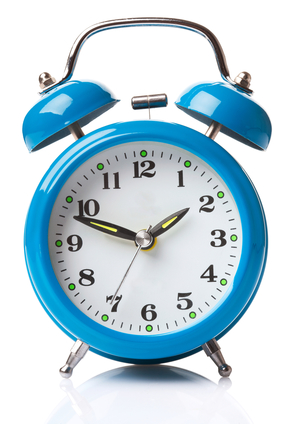Productivity has been a popular topic on Minimalist Monday. It's one of those things I keep trying to get better at, especially as I dive deeper and deeper into my minimalism.
My big breakthrough was when I stopped multi-tasking and started to single task. It's shocking how much more productive you are when you narrow in and stop jumping between tasks. It goes against all logic, but you accomplish so much less when you multi-task. (If you haven't read that post, please take 5 minutes to read it. Seriously, it will change your life!)

My minimalism and productivity have an interesting relationship. One of the reasons I'm a minimalist is so that I have more time (and money) to do the things I really care about and love. If that's my end game — my big goal, then it's also in my favor to be highly efficient and productive, at least with my "work." (Maybe not so much with my play!)
I've always been a busybody trying to juggle 10,000 things at once, so efficiency and productivity have always been on my mind. I'd often wonder "how can I get all these things done?" instead of thinking "either/or." I want it all, plain and simple.
Needless to say, I started to learn (and appreciate) the art of time management. Especially during college when I tried to juggle my studies, two jobs, extracurricular activities, boyfriends, my friends, life chores, and a crazy, coed social life.
I was a one-woman-show. I don't know that I ever slept.
Time management was great — and it's still great. But it's not the be-all solution, as I quickly learned.
The problem was there are just so many hours in a day, and eventually, I did need to sleep ;)

I started looking for ways I could be more efficient. Going back to my college example, I realized if I got up at 5 in the morning, when everyone else was still asleep and the house was quiet (and my mind was fresh and rested), I could plow through all my homework before my first class. It wasn't the most fun getting up that early, but I was able to do my homework in about half the time.
This was a big deal when each hour mattered!
I've been an early bird since then. (Check out my post: 10 Reasons Why You Should Get Up Early and How To Do It!) I still get up around 5, sometimes 6, and will write blog posts, newsletters, meal plans, etc. before Scott and the pugs rise.
I'm crazy efficient those first hours of my day. I think it helps that I know I have that limited set of time free from distraction...
It's like I'm cheating on my real day or something :-P

To recap:Time management helped. Getting up early helped. Still, I needed to grow more time. I still had those 10,000 things to do!
I found a renewed passion for and interest in efficiency when I left the law and started working freelance.
Suddenly I realized I was only getting paid for the work I actually did.
I'm not saying I slacked off all day at the office, but going to work from 8-5 and automatically getting the same paycheck, to getting paid only for every assignment I turned in, was a shock. It was a huge adjustment.
I couldn't just sit at my desk from 8-5, get through what I could get through, and expect a paycheck. Oh, no. I only got paid per assignment, whether it took all day or an hour.
I was also making a lot less money as a freelancer and quickly realized I needed to do an insane amount of assignments to stay afloat financially.
I needed to be super efficient. I needed to get more work done in less time.
Around this time, I'd also developed an interest in personal finance, or at least, debt. More specifically, how to get out of it. I had a ton of debt (still do) from law school. I was drowning.
Through my research I learned about the debt snowball and loved the approach. (I've actually been practicing it ever since with my student loans.)
I then started to wonder if I could use the same approach with my tasks. Could there be a task snowball?
Could I get out from under my mountain of "to dos" using a similar "snowball" approach?

YES.
Recycling the "debt snowball" into a "task snowball" system, here's what you do:
1. List all of your tasks, from least effort to most effort. (It might also help to break bigger tasks down into smaller tasks with actionable steps).
2. Estimate how long each task will take, and write it next to each.
3. Cross off the tasks in a sequence (single-task!) as quickly as possible. If necessary, schedule a time in your planner to do them.
4. Measure. A good habit I got used to during my life as a lawyer, and then as a freelancer, was logging how I spend my hours. We improve what we measure. Looking back over my "time sheets," I always find room for ways I can improve my productivity and efficiency, and knowing that clock is ticking seems to really help me move my butt! (I also like seeing how long tasks take me in general. It gives me a better sense for planning my days and schedules).
Point is, if you cross off a singular 5-minute task, you'll feel amazing. These little "wins" make a huge, HUGE difference. They snowball!

The 5 Minute Rule: If something will take me less than 5 minutes, I just do it. More than 5 minutes? It goes on the list. I also set aside 2 hours on Friday to blow through all those annoying 5-10 minute tasks that pile up because they're just so easy to put off and say,"Oh I'll do it later". And then, predictably, your Christmas ornaments stay in a box, in the middle of the living room, for a month (and you only finally put it away because friends were coming over for dinner in February... true story!).
Go start snowballing my minimalists!













